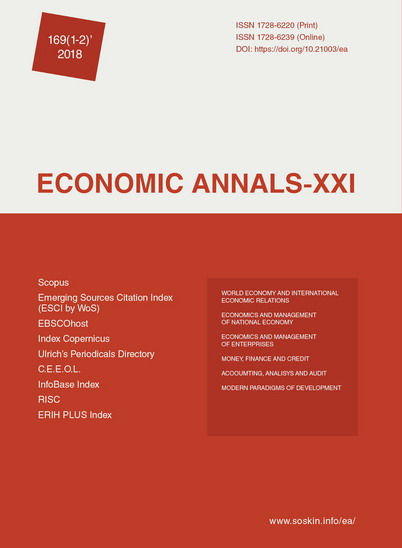Social intelligence in the cultural context: comparison of Ukrainian and Slovak managers
Social intelligence in the cultural context: comparison of Ukrainian and Slovak managers
Author(s): Miroslav Frankovský, Zuzana Birknerová, Lucia Zbihlejová, Marta MedviďSubject(s): Economy, Business Economy / Management, Culture and social structure , Management and complex organizations
Published by: Institute of Society Transformation
Keywords: Social Construct; Social Intelligence; Cultural Context; MESI Methodology; Manager;
Summary/Abstract: The presented theoretical and methodological study is based on the assumption that social constructs do not have a generally valid form but are culturally conditioned. The study presents the results of a research aimed at an analysis of the consistency of the factor structure of the MESI methodology (Measuring Social Intelligence) in the Ukrainian and Slovak managerial environment. At the same time, the results of the analysis of differences in the assessment of the extracted social intelligence factors (Manipulation, Empathy and Social Irritability) between the managers from Ukraine and Slovakia are presented. The data collection was carried out between August 2014 and March 2015 on a research file which consisted of 131 managers, of whom 65 were Ukrainian and 66 were Slovak managers from the areas of administration, trade and services. The findings make it possible to formulate answers to two questions. The first is related to the degree of universality of the extracted factor structures of social intelligence in the individual cultures. The second relates to the assessment of individual specified social intelligence factors within different cultures. The presented findings confirm that the factor structure of the MESI methodology, which is based on the samples of the Ukrainian and Slovak managers, is consistent. The existence of several differences in the assessment of social intelligence, with social irritability as an attribute, was confirmed. Social irritability is more prominently rejected by the Slovak managers. The cultural impact in terms of Social irritability is manifested by the fact that the Slovak managers reject the specifics of this construct (such as «it makes me nervous when I am with other people», «I rather avoid the presence of others», «the manifestation of the feelings of other people baffle me», and «the weaknesses and the wishes of others distract me») more strongly than the Ukrainian managers. This finding also points to the necessity of accepting the cultural context in examining social intelligence and social constructs in general.
Journal: Економічний часопис - ХХІ
- Issue Year: 169/2018
- Issue No: 1-2
- Page Range: 62-66
- Page Count: 5
- Language: English

